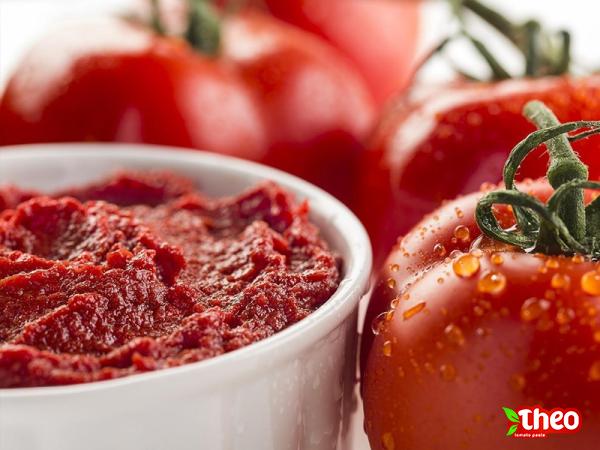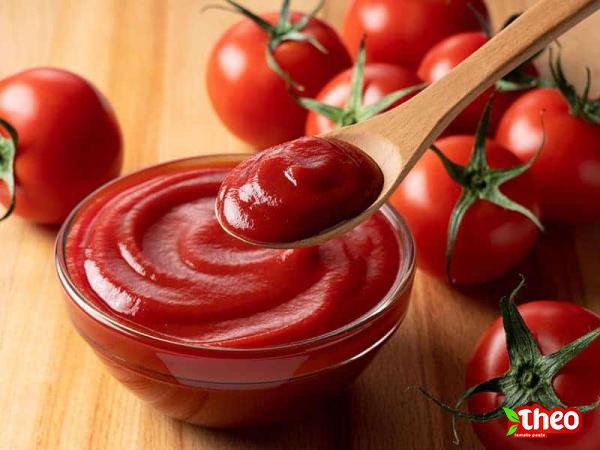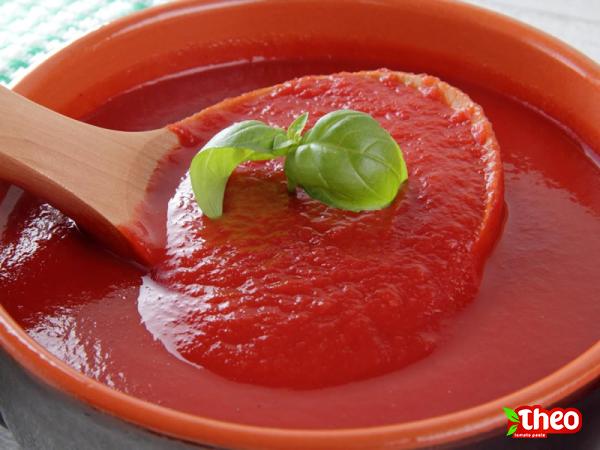Tomato Paste Jar Purchase Price + Quality Test Summary Introduction: The purchase price and quality of tomato paste jars can have a significant impact on consumers and businesses alike. This summary will provide a brief overview of the factors to consider when purchasing tomato paste jars, including price, quality, and testing methods. By understanding these elements, consumers can make informed decisions that meet their budgetary and quality requirements. Factors to Consider When Purchasing Tomato Paste Jars: 1. Price: The price of tomato paste jars can vary depending on various factors, including brand reputation, jar size, packaging, and ingredients. While it is essential to consider the price, it should not be the sole determining factor. Cheap options may compromise on quality, taste, or nutritional value. We recommend assessing the cost in relation to the quality of the product. 2. Quality: When evaluating the quality of tomato paste jars, several aspects must be considered: a) Ingredient Quality: Opt for tomato paste made from high-quality ingredients, preferably organic tomatoes without additives or preservatives. b) Packaging: The packaging should be sturdy and secure, protecting the contents from light, moisture, and air. Look for jars that are properly sealed and have a reliable lid to maintain freshness. c) Taste and Texture: Tomato paste should have a rich and vibrant taste, without any hints of bitterness or synthetic aftertaste. It should also have a smooth, thick, and consistent texture. d) Nutritional Value: Consider nutritional information, such as the presence of vitamins, minerals, and antioxidants, to ensure you are choosing a healthy option.
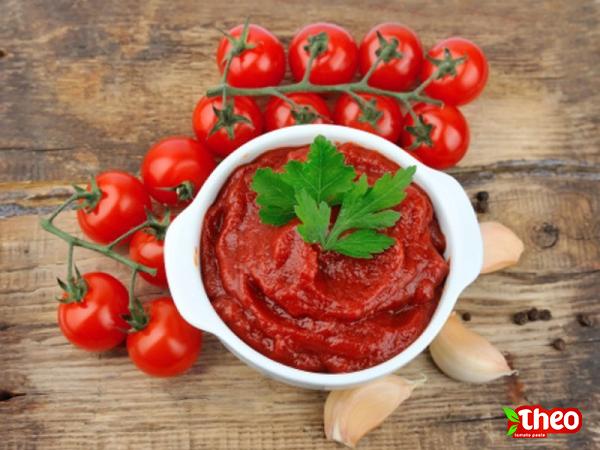
tomato paste
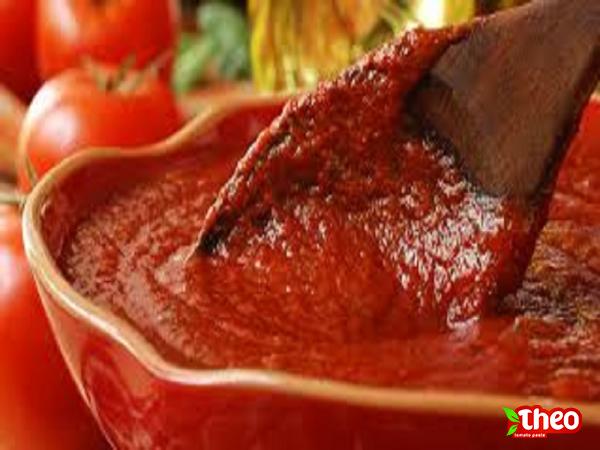 3. Testing Methods: To ensure the quality of tomato paste jars, various testing methods can be employed. These include: a) Sensory Evaluation: Conduct taste tests to determine the flavor, appearance, and texture of the tomato paste. Sensory evaluation can be done by a panel of experts or through consumer feedback. b) Chemical Analysis: Laboratory testing can assess the nutritional value, pH levels, sugar content, and potential contaminants (such as heavy metals, pesticide residues, or microorganisms) present in the tomato paste. c) Packaging Integrity: Evaluate the packaging’s ability to protect the product from external factors such as light, oxygen, and moisture. This can be done through careful examination of the jar’s seals and testing for any leaks or signs of tampering. Conclusion: When purchasing tomato paste jars, it is crucial to consider both the purchase price and product quality. Low-cost options may compromise on taste, ingredient quality, or packaging integrity. By evaluating various factors such as ingredient quality, packaging, taste, and nutritional value, as well as employing testing methods like sensory evaluation and chemical analysis, consumers can ensure they are buying a high-quality product that meets their budgetary and quality requirements. Making informed decisions regarding tomato paste jar purchases allows consumers to enjoy the many benefits of this versatile ingredient in their culinary endeavors.Tomato Paste Jar Purchase Price + Quality Test: Making Informed Decisions for Businesses Introduction: In the food industry, businesses rely on purchasing high-quality ingredients to produce superior products. Tomato paste is a staple ingredient used in various culinary applications, and selecting the right tomato paste jars is essential for maintaining the integrity and flavor of the final product. This article delves deeper into the topic of tomato paste jar purchase price and quality tests, focusing on how businesses can make informed decisions that benefit both their bottom line and customer satisfaction. 1. Evaluating Pricing Strategies: When it comes to tomato paste jar purchase, businesses must consider pricing strategies that align with their goals. While cost savings are important, it is essential to strike a balance between price and quality. Cheaper options may not meet the desired standards and can negatively impact the taste and overall quality of the dishes. Therefore, businesses should consider investing in higher-priced tomato paste jars that offer better quality and taste. 2. Sourcing High-Quality Tomato Paste Jars: To ensure the highest quality tomato paste jars, businesses should establish strong relationships with credible suppliers who prioritize quality ingredients and reliable packaging. Conduct thorough research to identify reputable suppliers who source tomatoes from trusted growers and follow strict quality control measures during the manufacturing process. Collaborating with established suppliers can lead to consistent and top-notch tomato paste products.
3. Testing Methods: To ensure the quality of tomato paste jars, various testing methods can be employed. These include: a) Sensory Evaluation: Conduct taste tests to determine the flavor, appearance, and texture of the tomato paste. Sensory evaluation can be done by a panel of experts or through consumer feedback. b) Chemical Analysis: Laboratory testing can assess the nutritional value, pH levels, sugar content, and potential contaminants (such as heavy metals, pesticide residues, or microorganisms) present in the tomato paste. c) Packaging Integrity: Evaluate the packaging’s ability to protect the product from external factors such as light, oxygen, and moisture. This can be done through careful examination of the jar’s seals and testing for any leaks or signs of tampering. Conclusion: When purchasing tomato paste jars, it is crucial to consider both the purchase price and product quality. Low-cost options may compromise on taste, ingredient quality, or packaging integrity. By evaluating various factors such as ingredient quality, packaging, taste, and nutritional value, as well as employing testing methods like sensory evaluation and chemical analysis, consumers can ensure they are buying a high-quality product that meets their budgetary and quality requirements. Making informed decisions regarding tomato paste jar purchases allows consumers to enjoy the many benefits of this versatile ingredient in their culinary endeavors.Tomato Paste Jar Purchase Price + Quality Test: Making Informed Decisions for Businesses Introduction: In the food industry, businesses rely on purchasing high-quality ingredients to produce superior products. Tomato paste is a staple ingredient used in various culinary applications, and selecting the right tomato paste jars is essential for maintaining the integrity and flavor of the final product. This article delves deeper into the topic of tomato paste jar purchase price and quality tests, focusing on how businesses can make informed decisions that benefit both their bottom line and customer satisfaction. 1. Evaluating Pricing Strategies: When it comes to tomato paste jar purchase, businesses must consider pricing strategies that align with their goals. While cost savings are important, it is essential to strike a balance between price and quality. Cheaper options may not meet the desired standards and can negatively impact the taste and overall quality of the dishes. Therefore, businesses should consider investing in higher-priced tomato paste jars that offer better quality and taste. 2. Sourcing High-Quality Tomato Paste Jars: To ensure the highest quality tomato paste jars, businesses should establish strong relationships with credible suppliers who prioritize quality ingredients and reliable packaging. Conduct thorough research to identify reputable suppliers who source tomatoes from trusted growers and follow strict quality control measures during the manufacturing process. Collaborating with established suppliers can lead to consistent and top-notch tomato paste products.
Specifications of tomato paste
 3. Assessing the Ingredient Quality: The quality of the ingredients used in tomato paste significantly affects the taste and overall experience of the final product. When purchasing tomato paste jars, businesses should look for options made from organically grown tomatoes without additives or preservatives. High-quality tomato paste provides a rich and authentic flavor, enhancing the taste of dishes and creating a positive customer experience. 4. Analyzing Packaging Integrity: Packaging plays a crucial role in maintaining the freshness and flavor of tomato paste. Businesses should opt for jars that are properly sealed and have reliable lids, ensuring that the product is protected from external factors such as light, air, and moisture. Well-designed packaging not only preserves the quality of the tomato paste but also gives a professional and appealing presentation, enhancing the brand image for businesses. 5. Conducting Sensory Evaluation: Sensory evaluation is a vital quality testing method for businesses when assessing the tomato paste’s taste, appearance, and texture. This evaluation can be done internally or by involving a panel of experts or potential consumers. By conducting blind taste tests, businesses can gather valuable feedback and make informed decisions regarding which tomato paste jars meet their quality standards and align with their target market preferences. 6. Implementing Chemical Analysis: Businesses should consider conducting laboratory testing through chemical analysis to evaluate the nutritional value and potential contaminants in tomato paste jars. This entails examining the content of vitamins, minerals, antioxidants, as well as testing for the presence of heavy metals, pesticide residues, or harmful microorganisms. These tests help businesses ensure that the tomato paste they purchase is safe, high in nutritional value, and free from potentially hazardous substances. 7. Establishing Supplier Audits: To maintain consistent quality, businesses should periodically conduct supplier audits to evaluate the manufacturing practices, quality control processes, and adherence to industry standards by their tomato paste jar suppliers. Supplier audits offer businesses a holistic view of the supplier’s operations, allowing them to make informed decisions based on their findings. Businesses can then choose suppliers who align with their quality requirements and ensure the integrity of their tomato paste products. 8. Collaborating with Culinary Experts: In some cases, partnering with culinary experts or professional chefs can provide valuable insights into the selection of premium tomato paste jars. These experts can provide guidance on the best brands, flavors, and textures that align with the specific culinary applications and desired taste profiles. Their expertise can help businesses make informed decisions that result in standout tomato-based dishes and improved customer satisfaction.
3. Assessing the Ingredient Quality: The quality of the ingredients used in tomato paste significantly affects the taste and overall experience of the final product. When purchasing tomato paste jars, businesses should look for options made from organically grown tomatoes without additives or preservatives. High-quality tomato paste provides a rich and authentic flavor, enhancing the taste of dishes and creating a positive customer experience. 4. Analyzing Packaging Integrity: Packaging plays a crucial role in maintaining the freshness and flavor of tomato paste. Businesses should opt for jars that are properly sealed and have reliable lids, ensuring that the product is protected from external factors such as light, air, and moisture. Well-designed packaging not only preserves the quality of the tomato paste but also gives a professional and appealing presentation, enhancing the brand image for businesses. 5. Conducting Sensory Evaluation: Sensory evaluation is a vital quality testing method for businesses when assessing the tomato paste’s taste, appearance, and texture. This evaluation can be done internally or by involving a panel of experts or potential consumers. By conducting blind taste tests, businesses can gather valuable feedback and make informed decisions regarding which tomato paste jars meet their quality standards and align with their target market preferences. 6. Implementing Chemical Analysis: Businesses should consider conducting laboratory testing through chemical analysis to evaluate the nutritional value and potential contaminants in tomato paste jars. This entails examining the content of vitamins, minerals, antioxidants, as well as testing for the presence of heavy metals, pesticide residues, or harmful microorganisms. These tests help businesses ensure that the tomato paste they purchase is safe, high in nutritional value, and free from potentially hazardous substances. 7. Establishing Supplier Audits: To maintain consistent quality, businesses should periodically conduct supplier audits to evaluate the manufacturing practices, quality control processes, and adherence to industry standards by their tomato paste jar suppliers. Supplier audits offer businesses a holistic view of the supplier’s operations, allowing them to make informed decisions based on their findings. Businesses can then choose suppliers who align with their quality requirements and ensure the integrity of their tomato paste products. 8. Collaborating with Culinary Experts: In some cases, partnering with culinary experts or professional chefs can provide valuable insights into the selection of premium tomato paste jars. These experts can provide guidance on the best brands, flavors, and textures that align with the specific culinary applications and desired taste profiles. Their expertise can help businesses make informed decisions that result in standout tomato-based dishes and improved customer satisfaction.
buy tomato paste
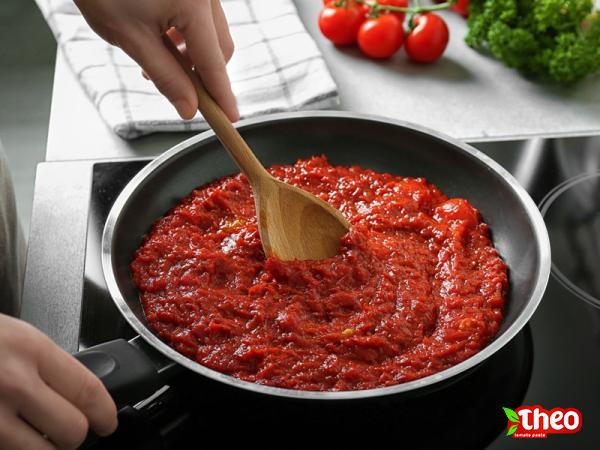 9. Considering Nutritional Value: In today’s health-conscious era, many consumers prioritize products that offer nutritional benefits. Businesses should consider the nutritional value of tomato paste when selecting jars, focusing on options that retain the nutrients naturally found in tomatoes. By prominently displaying the nutritional information on product packaging, businesses can appeal to health-conscious consumers, build trust, and enhance the perceived value of their tomato-based products. 10. Building Brand Reputation: By consistently choosing high-quality tomato paste jars, businesses can establish a reputation for providing superior products. Word-of-mouth recommendations and positive customer reviews contribute to brand recognition and customer loyalty. Building a strong brand reputation enables businesses to command a premium price for their culinary offerings and gain a competitive edge in the market. 11. Continuous Monitoring and Improvement: Purchasing high-quality tomato paste jars should not be a one-time exercise. It is crucial for businesses to continually monitor the quality of their tomato paste suppliers, engage in customer feedback, and stay updated on new industry trends. Continuous improvement efforts ensure that businesses always have access to top-notch tomato paste jars and can consistently deliver outstanding culinary experiences. Conclusion: Purchasing tomato paste jars at the right price point and ensuring exceptional quality is vital for businesses in the food industry. By evaluating pricing strategies, sourcing high-quality ingredients, analyzing packaging integrity, utilizing sensory evaluation and chemical analysis, conducting supplier audits, collaborating with culinary experts, considering nutritional value, and building brand reputation, businesses can make informed decisions that result in superior-tasting dishes, customer satisfaction, and long-term success in the market.
9. Considering Nutritional Value: In today’s health-conscious era, many consumers prioritize products that offer nutritional benefits. Businesses should consider the nutritional value of tomato paste when selecting jars, focusing on options that retain the nutrients naturally found in tomatoes. By prominently displaying the nutritional information on product packaging, businesses can appeal to health-conscious consumers, build trust, and enhance the perceived value of their tomato-based products. 10. Building Brand Reputation: By consistently choosing high-quality tomato paste jars, businesses can establish a reputation for providing superior products. Word-of-mouth recommendations and positive customer reviews contribute to brand recognition and customer loyalty. Building a strong brand reputation enables businesses to command a premium price for their culinary offerings and gain a competitive edge in the market. 11. Continuous Monitoring and Improvement: Purchasing high-quality tomato paste jars should not be a one-time exercise. It is crucial for businesses to continually monitor the quality of their tomato paste suppliers, engage in customer feedback, and stay updated on new industry trends. Continuous improvement efforts ensure that businesses always have access to top-notch tomato paste jars and can consistently deliver outstanding culinary experiences. Conclusion: Purchasing tomato paste jars at the right price point and ensuring exceptional quality is vital for businesses in the food industry. By evaluating pricing strategies, sourcing high-quality ingredients, analyzing packaging integrity, utilizing sensory evaluation and chemical analysis, conducting supplier audits, collaborating with culinary experts, considering nutritional value, and building brand reputation, businesses can make informed decisions that result in superior-tasting dishes, customer satisfaction, and long-term success in the market.

